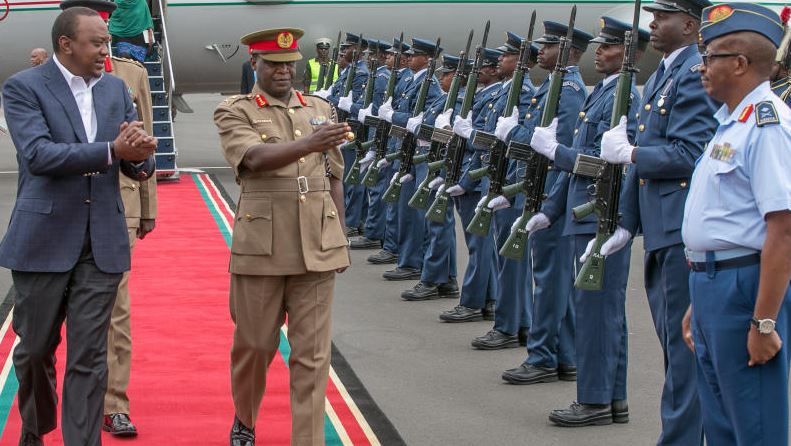×
The Standard e-Paper
Fearless, Trusted News

Newly appointed Chief of Defence Forces Robert Kibochi will oversee two milestones for Kenya: the planned withdrawal of troops from Somalia next year, and the transition from Uhuru Kenyatta’s presidency in 2022.
If he stays in office, Gen Kibochi will serve two Commanders-in-Chief, as President Kenyatta is scheduled to hand over power to his successor after serving two terms.